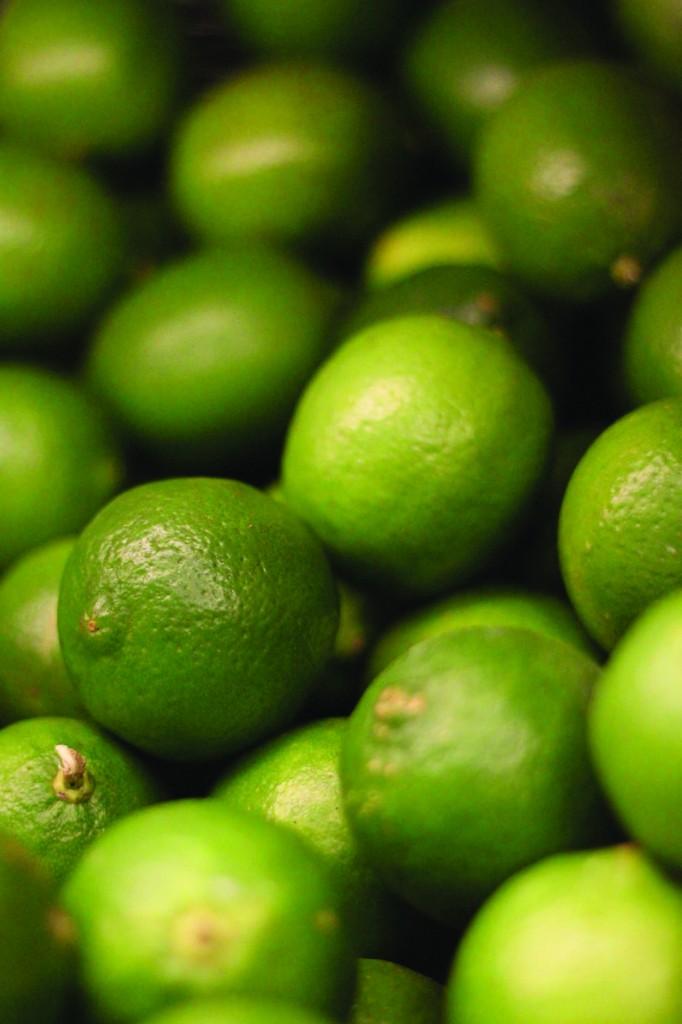Sour Like Lime
April 18, 2012
Margaret Lamb/Writing to the Right-Hand Margin Prize Co-Winner (Nonfiction)
Late one night, dressed in an oversized T-shirt and cotton underwear, I tiptoed down the stairs of my parents’ Kansas farmhouse. My sixteen-year-old legs had not yet decided on flesh, muscle, and bone, but they deftly moved me across the cool wood floors into the kitchen. I found myself facing the white refrigerator door, straining my ears for the sounds of my family. My tongue, cooked by years of lime juice, was ready to recite a quick excuse if my parents barked, “who’s up?!” I heard my breath, my heart, the light whirr of the refrigerator. Satisfied that I was passing unknown in the night, I opened the door and searched inside. I reached between tubs of casserole, ears of corn and jugs of liquid to pull out the last lime.

I made it back to my room undetected. Alone, under the covers of my bed, I brought the fruit to my face. Some of its cold had escaped into my body between the kitchen and my bed. Lying on my back, I rolled the lime over my lips, feeling the pressure of the porous skin against my teeth. To begin, I dug my fingernails into the rind–if I had trimmed them too much, I knew this part would hurt. Bound tighter than an orange, the rind could be sharp to touch, to taste, to smell. The skin could hold too tightly to its flesh. Ideally, I would take away the dark green rind in one zig-zagging piece. This time, however, the unwrappings unfolded for a few inches until the inevitable break. I set the pieces of rind on my chest, took in the deceptively sweet aroma, and rolled the white-green sphere between my hands, savoring the anticipation.
I gently separated one section from the others. This one: I would pinch between forefingers and thumbs, moving from the outside to the middle, tracing the shape of a plump lip. When all the pulp had broken, I bit in. First sucking the juice, then chewing the pulp and veins. I was accustomed to the sour of lime and took pleasure in its familiar strength.
I separated another section. This one: I bit in the middle, crushing each half between my tongue and my mouth’s roof. The juice moved between my teeth, under my tongue. The next section: I plopped it on the back of my tongue like an oyster, letting it slide down my throat, imagining the union of citric and stomach acids. Piece by piece, I consumed the wedges. Chewing, sucking, not bound by propriety. I worked my way around the sections, seeking a center. One by one, they became part of my body. Finally, I was left alone with the rind, sticky fingers, and the smell of sour.
I slept with lime shells on my chest. I wanted the fruit to melt into me. To cling tightly around my flesh. The aroma led to dreams of tropical things. My heart hurt for a space of warmth and sour, but when I woke, I was still surrounded by broken green shells in a cold flat room.
I ran my tongue across my teeth while I groggily dressed. After preparing myself for another day of school, I tenderly collected the pieces of rind scattered across my pillow. I rubbed each of the whites into my hands. Across the palms. Over the fingertips. I could feel my taste buds tighten and the saliva collect under my tongue. Thinking that others do not have these secret acts of consumption, I moved to my bedroom window and cast the peel over the roof, into the prairie wind.
On the refrigerator door, my mother kept the list of groceries for the week. Bread. Milk. Steak. Ketchup. Each item jotted hastily, without care, to be consumed in the same fashion. Chewing without taste, eating without love. I stood facing the shopping list with a dulled pencil from my school bag. Slowly, gently, I added in very faint writing: Limes.
With a quick turn, I left the kitchen. Left the house. During my walk to school and throughout the day, I would find moments to bring my hands up to my face and inhale the scent of sour like lime.









